Why Do We Love Loki?
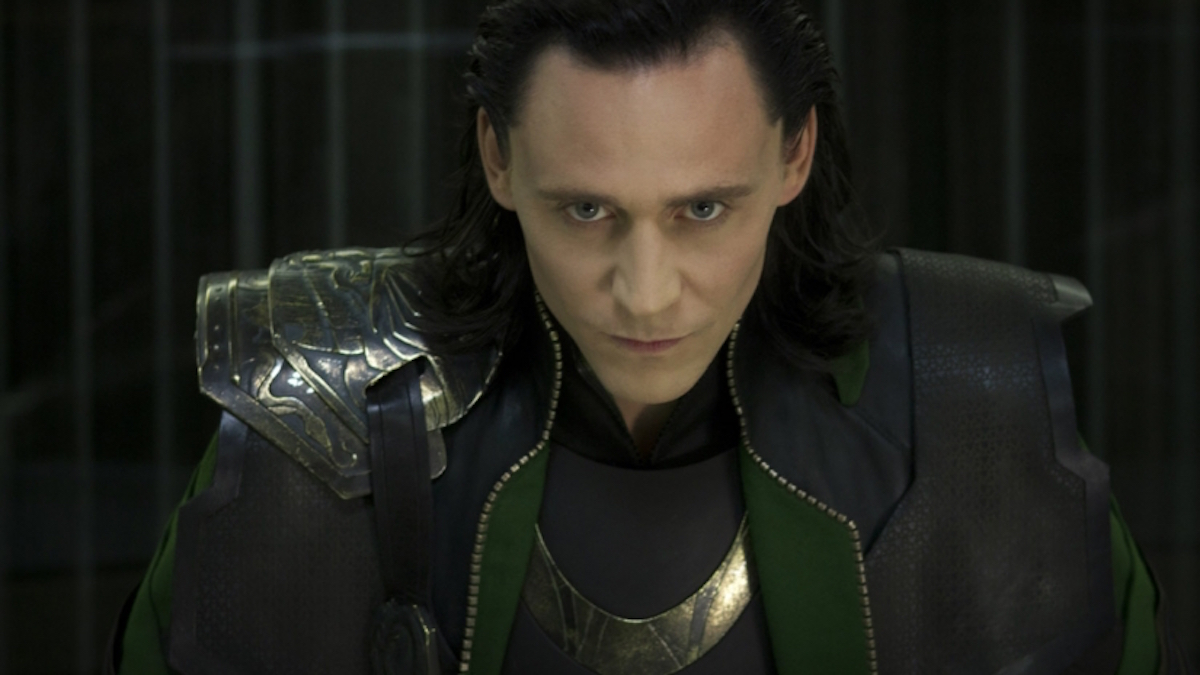

From his first appearance in 2011’s Thor, audiences have been in love with the god of mischief, Loki as played by Tom Hiddleston in the Marvel Cinematic Universe. From Thor to his fantastic turn in Avengers, to two Thor sequels, a tragic turn in Infinity War and now on to his own Disney+ series, audiences can’t get enough Loki. But … why?
I’m pretty well-suited to examine this, given that I too, like many of you, am obsessed with Loki. He’s my favorite MCU character by a country Bifrost, and I know I’m not alone in that sentiment. He’s so fun, so darkly sexy, so intriguing and compelling. I just love him. I also think I’m not alone in the way that Loki fits into a type for me. The tragic, sensitive, magical, villain who deep down just needs a hug and he’ll stop with all the murder and mayhem.
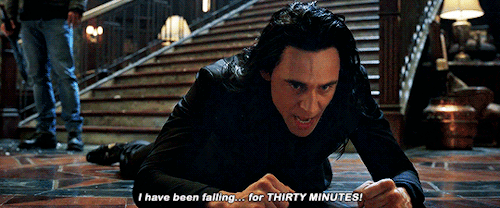
And yes, I know this is the most problematic of tropes. We’re not here to discuss if it’s healthy or right that we’re obsessed with what one genius twitter user a few years back referred to as the opposite of the manic pixie dream girl, the “depressive demon nightmare boy.” We’re here to talk about why.
These characters, from The Phantom of the Opera to Spike on Buffy to Kylo Ren are variations on a larger “bad boy trope”—the Byronic hero, but villainous. They’re tortured and sensitive but they do it with such style and panache that the audience finds themselves rooting for these guys. Not only are they sad and lonely, but they’re fun to watch. SO fun, usually that they never stay villains and become either tragic or reluctant heroes. We won’t let them go and demand redemption for them because we want to keep them on our screens—for many reasons.
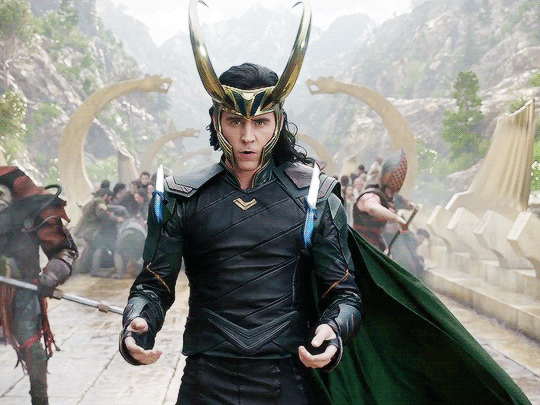
(image: Disney)
For one, yes, aesthetics. Tom Hiddleston is a cutie. His looks are not just appealing, but he’s also a contrast to the muscle-bound hunkitude of Chris Hemsworth as Thor. He’s more dark and delicate and some of us really like that brand of handsome. But he’s also just plain entertaining. He’s funny and magical and tricky, all with that tragic heart at the core that we can’t help but fall for. But that’s been humanity’s relationship to tricksters for eons.
Loki is above all things, a trickster. He’s been part of the culture for centuries as a god of the Norse pantheon, long before he was a comic villain. There’s a reason that cultures across the globe and time all have trickster gods, From Anansi in Africa, to Monkey in China, to Coyote and Raven in the First Nations of America. Tricksters are fundamental. They represent fun and chaos and magic, but they also represent change, subversion, and progress. Raven brings light to the world, and Loki brings the end of all things.
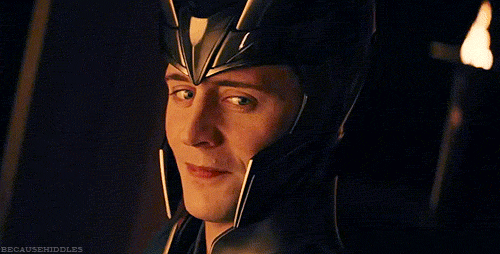
The MCU version of Loki is just the latest in a long line of tricksters that have won our hearts, and even our other nightmare boys could fall into that line. But it’s not just the hotness or the fun of Loki (and these others) that I think female fans, in particular, find compelling. I think in a way, we see ourselves in Loki.
When you look at Loki, especially in contrast to Thor, he represents something that is, if not feminine, is distinctly non-masculine. His power, the power of a trickster, relied on magic and wits, women’s weapons in many senses. Heck, he learned magic from his mom. He’s wilier and more delicate. He’s ruled by emotion as well, which we’re so often told women are (not true, obvs, but that’s the line we’re fed). Especially when the demographics of the MCU make it hard to find powerful women to root for in equal numbers to the men (though that has changed), it was Loki in who we saw our feminine selves and situation.
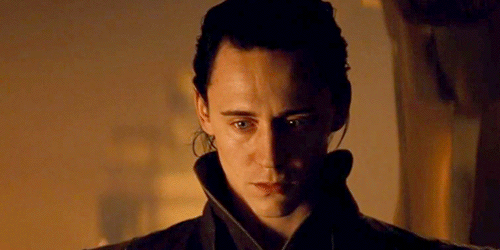
Now, there’s a long history among villains of queer coding and feminization as a subtextual way of showing a character is bad and evil. The fact that queerness and femininity are tangled in with magic and emotion and mischief and all of those things can so easily be seen as evil by society at large … it makes us feel and empathize with Loki no just because he’s sexy and fun, but because we see our own feminine struggles in his story.
This isn’t even so far off from the canon of the comics or Norse myth. Loki has never been confined by gender norms. He became “Lady Loki” in the comics and in mythology he changed form often and even gave birth to several children, including an eight-legged horse. Even in the MCU, Loki’s never been saddled with a love-interest and we can headcanon all sorts of things about his sexuality or identity.
And that’s the thing about Loki. He’s malleable and adaptable, both for fans and as a character. He’s many things. He’s complex and dangerous, but also fun. He’s badass and capable, but also vain and impetuous. And of course, much of this comes from Tom Hiddleston’s brilliant performance which so deftly combines bravado and sensitivity, malice and magic.
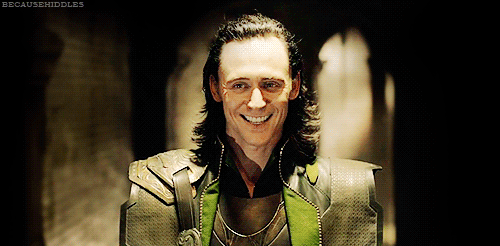
I could go on about why we love Loki, and villains like him. Our fascination with them is a deep well that says a lot about how we feel about gender, morality, magic, story and more. Our love affair with tricksters and bad boys is fundamental and flawed, but it’s also fascinating, just like the characters we love.
(image: Marvel/Disney)
Want more stories like this? Become a subscriber and support the site!
—The Mary Sue has a strict comment policy that forbids, but is not limited to, personal insults toward anyone, hate speech, and trolling.—
Have a tip we should know? [email protected]
